MercoPress. South Atlantic News Agency
Tag: Uruguayan peso
-
Monday, November 18th 2013 - 18:33 UTC
Astori forecasts Uruguay's inflation in the range of 3 to 7% in the next two years
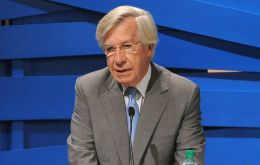
Vice-president Danilo Astori confirmed that Uruguay will continue with its current flexible foreign exchange policy, because “this has helped us reduce volatilities”, but also admitted concern about inflation, the third highest in South America and fourth in Latin-American and the Caribbean.
-
Tuesday, July 30th 2013 - 03:07 UTC
Uruguay needs ‘a dollar at 25 Pesos’ if it wants to remain competitive warn economists
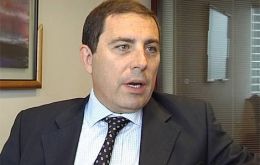
Uruguay is too expensive in dollar terms and needs to adapt quickly because the adjustment will come anyway ‘and will be painful’ unless inflation is brought under control and costs equilibrium is reached with Brazil with a competitive dollar at 25 Pesos.
-
Tuesday, April 2nd 2013 - 05:30 UTC
Uruguayan exports in first quarter down 13% compared to a year ago
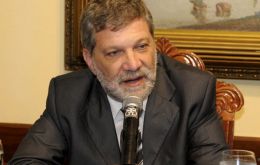
Uruguayan exports of goods in March continued falling thus closing a discouraging first quarter, according to Uruguay XXI, the country’s agency responsible for promoting trade and investment in the country.
-
Thursday, January 3rd 2013 - 06:02 UTC
Record purchase of US dollars to keep Uruguayan Peso from further appreciation

Uruguay’s Central bank on Wednesday made its largest purchase of US dollars on record totalling 120 million dollars following on the bank’s monetary committee decision in the last week of 2012 to increase the basic rate to 9.25% as the country struggles to contain inflation.
-
Tuesday, July 31st 2012 - 01:58 UTC
Increase of non resident deposits in Uruguayan banks

The number of bank accounts of non residents in Uruguay climbed 14% in June compared to a year ago, --6.769 new clients--, which is higher than the increase verified for the whole number of residents and non residents, up 2%, according to Uruguay’s central bank data.
-
Tuesday, June 5th 2012 - 23:34 UTC
Uruguay lost competitiveness for sixth month running in April with main trade partners

External competitiveness of Uruguayan goods dropped for the sixth month running in April because locally produced goods’ prices in US dollars dropped less than those of its main trade partners according to figures released by the Central bank.
-
Monday, August 1st 2011 - 07:02 UTC
Uruguayan Peso over-valued 17.4% against the dollar according to Big Mac’s PPP
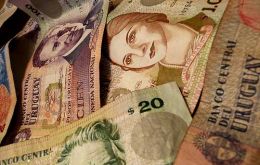
The Uruguayan Peso is 17.4% over-valued against the US dollar according to the Big Mac index from The Economist which means the greenback should be trading in Montevideo money markets at 21.62 Pesos and not 18.25 Pesos as currently happens.
-
Thursday, June 2nd 2011 - 08:52 UTC
US dollar looses 1.85% against the Uruguayan Peso in May; 7.44% in five months

The US dollar continues to slide in the Uruguayan foreign exchange market having lost 1.85% in May vis-à-vis the Uruguayan peso, completing the steepest monthly drop so far in 2011.
-
Thursday, April 7th 2011 - 10:11 UTC
Uruguay’s public debt to abandon foreign currencies for local Pesos

Uruguay this year plans to swap part of its foreign-currency bonds for debt denominated in Pesos, said Economy Minister Fernando Lorenzo. Uruguay will also sell Peso securities and use the proceeds to pay off bonds denominated in other currencies, Lorenzo said without providing further details.
-
Wednesday, March 23rd 2011 - 19:30 UTC
Uruguay expands record 8.5% in 2010; forecasts 6% this year
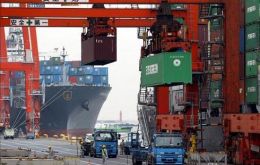
The Uruguayan economy completed in 2010 the eighth year running of expansion having recorded 8.5%, which together with 2008 and 1998 makes them the best three years of the last two decades. Uruguay managed to skip the 2009 global recession with a 2.9% expansion.
